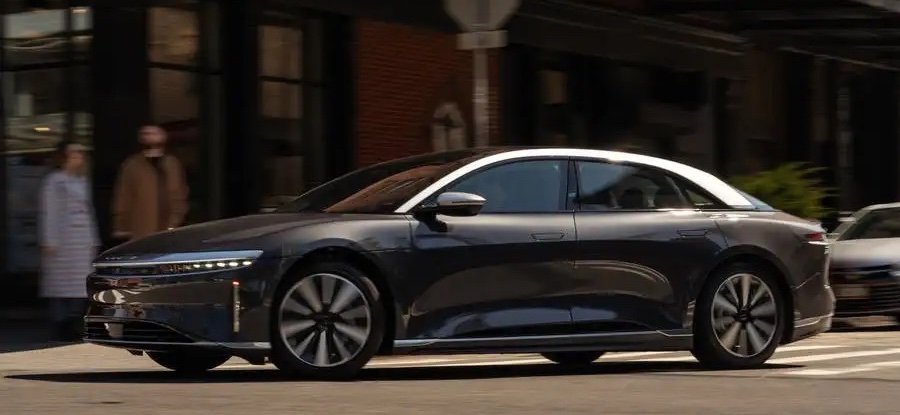Lucid aims for electric cars to achieve 6.2 miles per kWh

Lucid boss Peter Rawlinson has said improving the efficiency of electric cars so they can travel 10km (6.2 miles) per kWh is the “holy grail” that will ensure that EVs will help to “save the planet”.
The result of this would be a car that achieves a 300km (186-mile) range with only a 30kWh battery pack, dramatically reducing the cost of the car in the process given that a battery can be as much as 40% the cost of an electric car at the moment.
Lucid, a US start-up that makes a large luxury saloon called the Lucid Air, produces its downsized electric motors and energy-dense batteries in-house and already boasts efficiency that is the envy of rivals.
“People think that we’re on a bandwagon of making expensive, luxury SUVs but we’re here to advance the technology with state-of-the-art EVs,” Rawlinson said, speaking at a presentation to Car of the Year jurors at the Geneva motor show.
The figures Rawlinson quotes are all based on the tougher US EPA ratings for electric cars rather than the WLTP standard of Europe. This could mean that, when converted to a metric used in the UK, Rawlinson’s 6.2 miles per kWh goal becomes around eight miles per kWh, which is more than double what you’d typically find on the market today for even the most efficient electric car.
The entry-level Air Pure achieves 4.7 miles per kWh on the latest, more stringent EPA tests, one mile per kWh better than the most efficient Tesla Model S. Rawlinson said that getting to 5.0mpkWh on a car of the Air’s size would be a reality “pretty soon”.
The 6.2 miles per kWh goal is one that Rawlison “would love to get to” with the firm’s planned smaller mid-size SUV due in late 2026 but in reality “it is a bit further out”.
When that efficiency is reached, the battery can become dramatically smaller to reduce the cost and weight of the vehicle and still provide an acceptable range. And Rawlinson said reducing the size of the battery will always make the biggest difference in cost to electric cars.
“Not far in the future, you can get 10km per kWh and then it’s a 300km range from a 30kWh battery, which is much smaller than today [even an electric supermini would have an approximately 50kWh battery],” said Rawlinson. “Then you can reduce the cost of the battery from $20,000 to around $3000-$4000 with proper industrialisation and economies of scale.
“Things like gigacasting will save hundred of pounds in the production of the body but what I’m talking about tries to save thousands.
“We currently already only need a battery two-thirds the size of our competitors' and that reduces by a third the amount of lithium mined, cobalt mined, and reduces the need for that energy to be made anyway.”
Rawlison said Lucid’s technical advantage in efficiency lies in several areas, including the thermodynamic and magnetic performance of the downsized electric motors, as well as in the way the battery is connected and the software that operates all the running gear.
Lucid used the Geneva show to give a European debut to the new Sapphire version of the Air, which has a 0-62mph time of just two seconds and will go on sale in Lucid’s chosen European markets later this year. The firm remains keen and open to a UK launch but has yet to commit to a date to do so.
Related News
